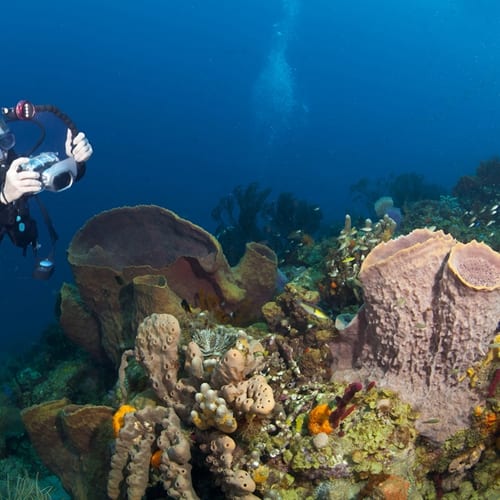There's good news to report on the jobs front: Businesses are hiring.
It seems that with each passing employment report, joblessness is waning. In the most recent update, the unemployment rate in November fell to a near 10-year low at 4.6 percent, the U.S. Department of Labor reported. The percentage of Americans out of work has the potential to fall even further in 2017, as 20 percent of companies intend to add to their ranks in 2017, according to a survey completed by recruitment firm ManpowerGroup.
Is next year the one where you make a "splash" into a new line of work? Here at Fisk Marine Insurance International, we know the commercial diving field intimately and have been providing a full range of marine and other insurance products for more than quarter of a century.
But we also know that commercial diving is a specialized field that you may be cautious about wading into without knowing a little more about it. The following should provide you with some answers so you're not all wet behind the ears.
1. What do commercial divers do?
Perhaps a better question to ask is what commercial divers don't do, as their day-to-day activities can run the gamut. However, for the sake of simplicity, commercial divers make their living under the deep blue sea to repair, replace or install equipment for businesses or entities that hire them. Knowing your way with tools can really come in handy as a commercial diver, as sledge hammers, welding equipment and drills are just a few of the implements that divers wield to achieve mission accomplished.
2. How much do they earn?
As with most professions, salary depends on a lot of elements, including prior experience and market dynamics. Generally speaking though, commercial divers earn right around the national household median of between $50,000 and $55,000 per year, according to the Bureau of Labor Statistics. The longer divers have been in the industry, the more they make.
3. What industries are most likely to hire commercial divers?
You might be surprised by how many sectors have some dealings with the sea, but typically, the top ones include civil engineering construction, industries whose main means of transport is via water (like shipping), architecture and other support services, according to government data.
4. Where do commercial divers primarily work?
Yep, you guessed it – commercial divers are everywhere, even in landlocked states. But in terms of sheer numbers, look to the coasts. Texas, Louisiana, California, Washington, Florida, Virginia and New Jersey have the highest share of commercial divers, according to BLS analysis. The same goes for Michigan, being in the Great Lakes region.
There's a whole lot more to explore in the profession that is commercial diving, but this should at the very least help get your feet wet. For more info on what a career in commercial might lead to down the road, check out this piece from the Divers Institute of Technology.

